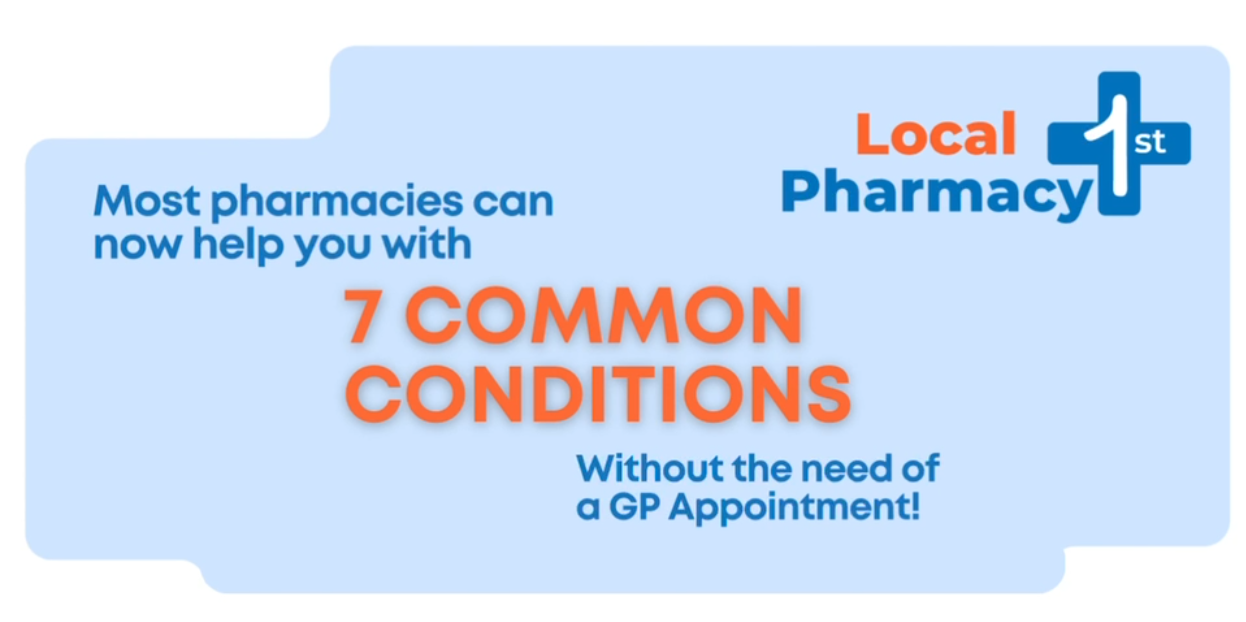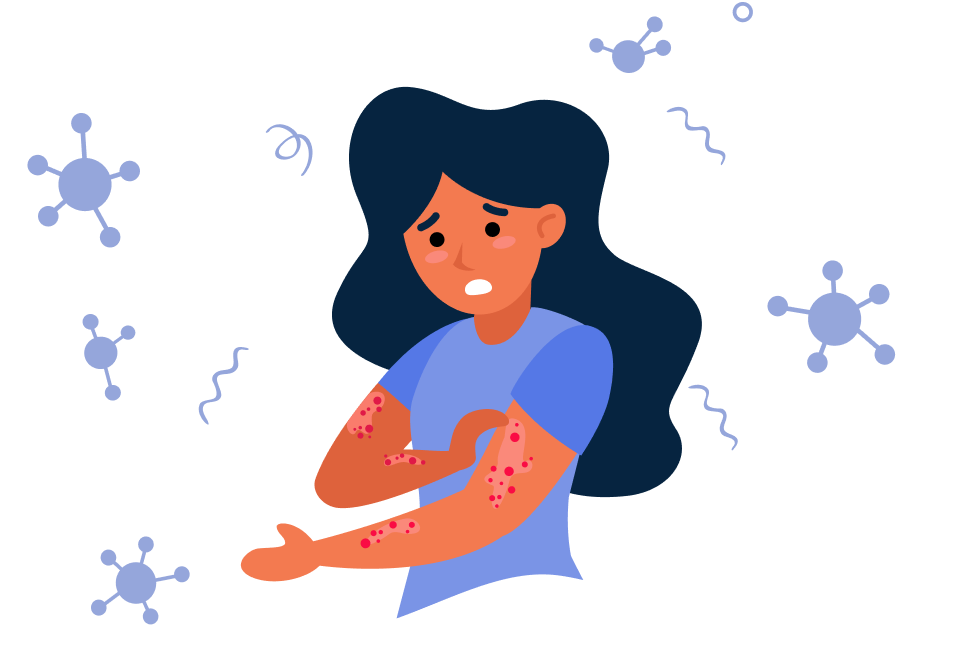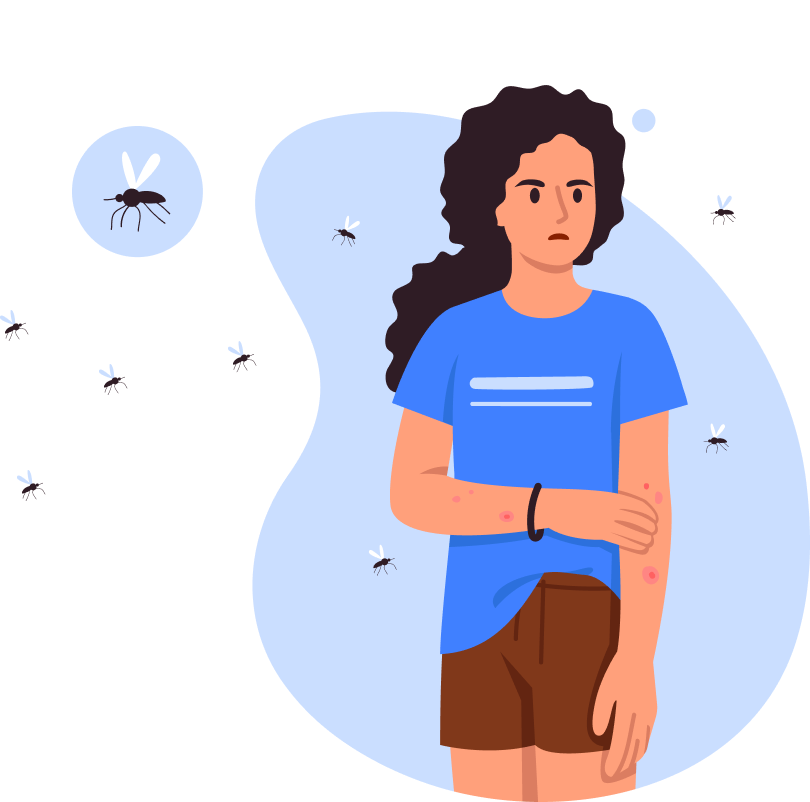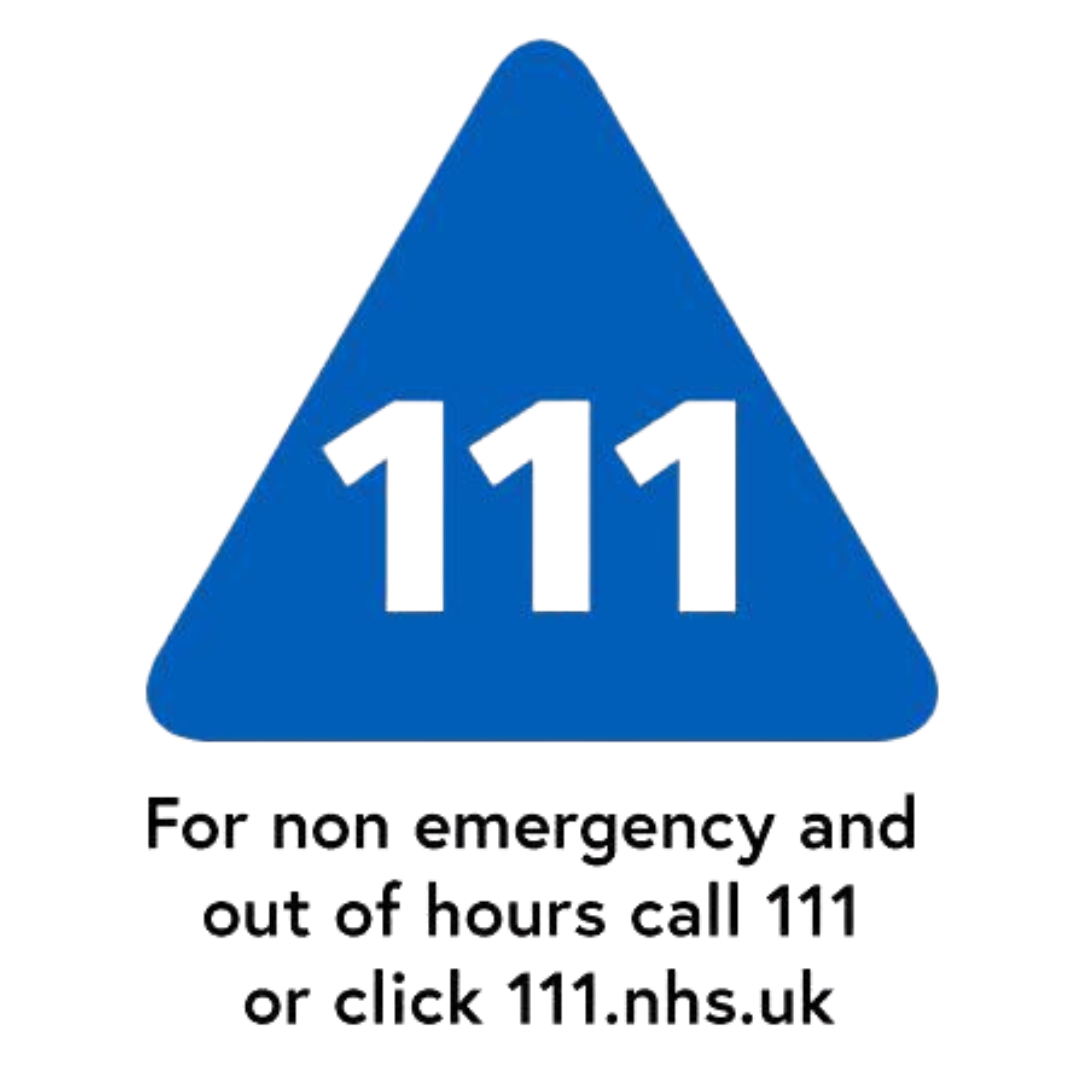Detailed Overview of the 7 Common Conditions We Treat
The NHS Pharmacy First Service provides fast, accessible care for minor conditions without the need to see a GP. Here's everything you need to know about each condition we can help you with at your local pharmacy.

Detailed Overview of the 7 Common Conditions We Treat
The NHS Pharmacy First Service provides fast, accessible care for minor conditions without the need to see a GP. Here's everything you need to know about each condition we can help you with at your local pharmacy.

Introduction to Pharmacy First
Learn How Pharmacy First Can Help You
Watch this quick NHS video to understand how your local pharmacy can treat minor conditions faster.

Earache
(Acute Otitis Media)
Children Aged 1 to 17
Years What Is It?
Acute Otitis Media is a common ear infection, especially in children. It often develops after a cold or respiratory infection.
Causes
Viral or bacterial infection in the middle ear. Often linked to colds, sinus infections, or throat infections.
Signs & Symptoms
Sudden ear pain, Fever, Difficulty hearing, Fluid discharge from the ear (if the eardrum bursts). Restlessness or irritability in children Pulling at the ear
Pharmacy Treatment
Pain relief: Paracetamol or ibuprofen, Assessment for antibiotics if bacterial infection suspected, Advice on home care, keeping the ear dry, and when to see a doctor

Impetigo
Aged 1 Year & Over
What Is It?
Impetigo is a highly contagious bacterial skin infection, common in children but can affect adults.
Causes
Bacteria: Usually Staphylococcus aureus or Streptococcus pyogenes.
Often enters through cuts, insect bites, or broken skin.
Signs & Symptoms
Red sores around the mouth and nose.
Sores quickly burst, leaving golden, honey-colored crusts.
Itchy rash. Sometimes mild swelling.

Pharmacy Treatment
Pain relief: Paracetamol or ibuprofen, Assessment for antibiotics if bacterial infection suspected, Advice on home care, keeping the ear dry, and when to see a doctor
Infected Insect Bites
Aged 1 Year & Over
What Is It?
When an insect bite becomes infected, the skin around it reacts with increased redness, swelling, and pain.
Causes
Secondary bacterial infection from scratching or poor wound care.
Common insect bites: mosquitoes, fleas, spiders.
Signs & Symptoms
Red, swollen, warm, and painful area
Pus, blisters, or discharge
Fever or flu-like symptoms (if infection spreads)

Why Early Help Matters
Quick pharmacy support can prevent serious infections like cellulitis.
Pharmacy Treatment
Assessment and provision of oral antibiotics if needed
Self-care advice: cold packs, antihistamines, painkillers.
Advice on bite prevention and wound hygiene
Shingles
(Herpes Zoster)
Adults Over 18 What Is It?
Shingles is a reactivation of the chickenpox virus (varicella-zoster), which lies dormant in nerve tissue.
Causes
Reactivation of the dormant virus, often triggered by stress, ageing, or weakened immune system.
Signs & Symptoms
Tingling, burning, or pain in a localized area Rash of fluid-filled blisters on one side of the body Pain can persist after the rash heals (postherpetic neuralgia)

Why Early Help Matters:
Early antiviral treatment can reduce the severity and duration of symptoms and prevent long-term nerve pain.
Pharmacy Treatment
Pain management advice: paracetamol, ibuprofen, or stronger if needed Referral to GP if symptoms are severe or spread
Sinusitis
(Acute)
What Is It?
Acute sinusitis is inflammation of the sinuses, usually following a cold or upper respiratory infection.
Causes
Viral infections are most common
Sometimes bacterial if symptoms persist beyond 10 days.
Signs & Symptoms
Blocked or runny nose with green/yellow mucus Facial pain or pressure (especially around eyes or cheeks)
Headache, Fever, Loss of smell.
Pharmacy Treatment
Self-care advice: decongestants, saline sprays, painkillers.
Antibiotics may be provided if bacterial infection is suspected (under PGD)
Advice on steam inhalation and staying hydrated
Why Early Help Matters:
Prompt advice can help clear the infection and prevent chronic sinus problems.
Sore Throat
(Acute)
What Is It?
A sore throat is usually caused by a viral infection but can sometimes be bacterial (such as Streptococcus).
Causes
Viral infections (common cold, flu)
Bacterial infections (strep throat)
Signs & Symptoms
Pain or scratchy sensation in the throat. Swollen tonsils, possibly with white patches<br>
Fever, Swollen glands in the neck,
Difficulty swallowing
Pharmacy Treatment
Assessment using FeverPAIN or Centor score to determine likelihood of bacterial infection.
Advice on self-care: lozenges, pain relief, throat sprays.
Antibiotics supplied under PGD if bacterial infection likely
Why Early Help Matters:
Immediate pharmacy support can relieve symptoms and avoid unnecessary GP appointments.
Uncomplicated Urinary Tract Infection
(UTI)
Women Aged 16 to 64 What Is It?
A UTI is a bacterial infection in the urinary system, commonly affecting the bladder.
Causes
Bacteria (usually E. coli) entering the urinary tract.
Can be triggered by dehydration, poor hygiene, or sexual activity.
Signs & Symptoms
Burning sensation when passing urine
Frequent urge to urinate, even if little urine passes
Cloudy or strong-smelling urine
Lower abdominal pain
Pharmacy Treatment
Quick symptom check to confirm uncomplicated UTI
Antibiotic supply (trimethoprim or nitrofurantoin) under PGD
Advice on hydration, cranberry products, and preventing recurrence
Why Early Help Matters:
Rapid treatment prevents the infection from spreading to the kidneys.
Why Visit Your Pharmacy First?
- Immediate Advice: – No appointment needed.
- Expert Care: – Trained pharmacists can assess and treat you.
- Convenient Access: – Local, walk-in service.
- Faster Relief: – Get treatment on the same day.
- Safe and Effective: – All care is provided under NHS guidelines.
- Get NHS help fast.

If you need more advice or further support, use NHS 111
- NHS 111 is available 24/7 to offer medical guidance.
- You can visit 111.nhs.uk or call NHS 111 to find out the most suitable service for your needs.
- It helps you decide whether you need urgent care, a GP, a pharmacist, or self-care at home.


